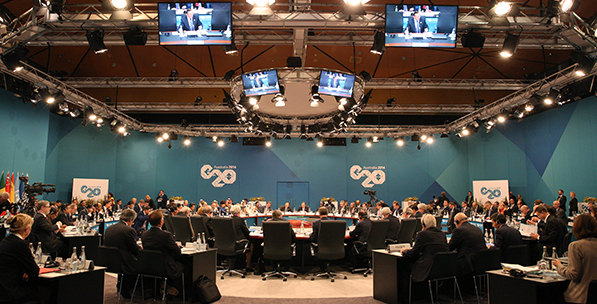As far as Turkey’s long-term development narrative is concerned, these are truly historic times. Last week the government announced the first part of a comprehensive and ambitious structural transformation package and this week Prime Minister Ahmet Davutoğlu headed to Brisbane, Australia to take over the rotating presidency of the G20. These two crucial developments mean that Turkey will lead the premier forum of global economic governance over the course of 2015 and influence the direction of the global economy while overseeing one of the most comprehensive domestic structural transformations in the Republican Era. In other words, radical domestic and international transformations merge at a critical and historic juncture.
As to the former, the new structural transformation package constitutes a real watershed in Turkey’s development history. Turkey followed an import substitution-cum-planning regime between 1960 and 1980 around five year development plans and following a neoliberal transition, development plans lost their prominence in macroeconomic management. In the last three decades the Turkish planning mentality largely “followed the market,” a trend that culminated in the closure of the State Planning Organization (SPO) and its transformation into the Ministry of Development. However, the 10th Five Year Development Plan for 2014 to 2018 represented a rupture and signaled the birth of a new generation of Turkish planning with concrete and inter-sectorial goals, priority transformation programs, urgent action plans, clear deadlines and performance criteria.
The first part of the structural transformation program in the real economy carried the tone of developmental proactiveness through neo-planning, or “leading the market,” to stimulate Turkey’s momentum of growth. We think that this modern and comprehensive initiative itself constitutes a revolution in development thinking in Turkey. Obviously, the action plan could be fine-tuned to ensure maximum contribution by the private sector, but the main problem areas and structural weaknesses of the Turkish economy are determined correctly. What we could expect in the coming months is a tense process of public-private dialogue and collaboration in different sectors to increase the local value added to manufacturing production, decrease import dependency of productive sectors, improve energy efficiency and build the foundations of a knowledge economy.
From another angle, by declaring this structural transformation package, Turkey preferred to “lead the G20 by example” and offered one of the most comprehensive domestic structural packages to the attention of the global economic community. As the rotating presidency of the forum is assumed after this weekend’s summit, structural transformation programs in G20 member states to promote global growth and minimize systemic risks will be on the policy agenda and Turkey will start its term by having completed its homework. Moreover, holding the 2015 G20 presidency will attract the global spotlight to Turkey’s economic prowess over the course of the last decade and its potential for increasing its performance in the near future. Likewise, the issue of energy supply security will be on the agenda in tune with Turkey’s position as a major international energy corridor and processing hub.
While the G20 is essentially a financial governance platform focusing on the monetary policies of leading economy ministries and central banks, macro level issues concerning the global business environment (B20), global labor regulations (L20), demands of civil society institutions (C20), think tank organizations (T20) and youth organizations (Y20) constitute other elements of the wider policy agenda of the G20. Therefore, Turkey will enjoy the opportunity to bring its own policy priorities as well as the priorities of developing countries across those areas to the attention of the leaderships of 20 major world economies. This is a rare chance to trigger Turkey’s own economic takeoff and galvanize its stance as a cred

